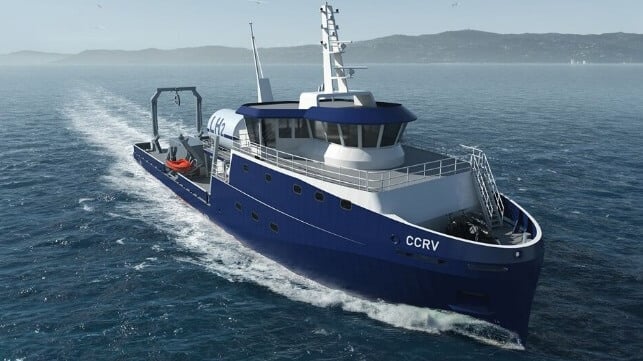Innovative Hydrogen-Hybrid Research Vessel Receives Approval for Design
Key Ideas
- Glosten and Siemens Energy receive Approval in Principle for UC San Diego's hydrogen-hybrid Coastal-Class Research Vessel, featuring zero-emissions hydrogen fuel cells.
- The vessel's design overcame regulatory challenges by harmonizing modern research requirements with evolving regulations and novel liquid hydrogen technology.
- The CCRV aims to be a significant contributor to the adoption of hydrogen as a marine fuel, promoting environmental sustainability in the maritime industry.
- In addition to research missions, the CCRV will provide valuable hands-on learning opportunities for students, aligning with UC San Diego's educational programs.
Naval architecture and marine engineering firm Glosten, in collaboration with Siemens Energy, has secured an Approval in Principle from the American Bureau of Shipping for the design of UC San Diego’s new hydrogen-hybrid Coastal-Class Research Vessel (CCRV). This innovative vessel, to be operated by Scripps Institution of Oceanography, integrates hydrogen fuel cells for zero-emissions operation. The project faced complex regulatory challenges due to being an uninspected, California Air Resource Board-compliant, ABS-classed vessel with an alternative design under SOLAS. Glosten's lead marine engineer, Robin Madsen, highlighted the intricate process of ensuring safety while utilizing liquid hydrogen technology efficiently. The vessel's genesis was a feasibility study in 2018, leading to close collaboration with regulatory bodies like the United States Coast Guard and ABS to define a framework for hydrogen use. ABS emphasized the potential of the CCRV to advance hydrogen adoption in the maritime industry. The vessel's approval demonstrates the validation of hydrogen-fuel-cell propulsion for coastal vessels and signifies a milestone in emissions-free maritime operations. Moreover, the CCRV will play a crucial role in marine ecosystem research and provide a learning platform for UC San Diego students, aligning with the university's commitment to environmental protection and education. The project is now advancing towards the construction phase, promising a world-class research vessel that minimizes environmental impact while shaping the future generation of marine scientists and policymakers.
Topics
Projects
Education
Zero Emissions
Marine Engineering
Alternative Fuel
Research Vessel
Regulatory Compliance
Latest News
